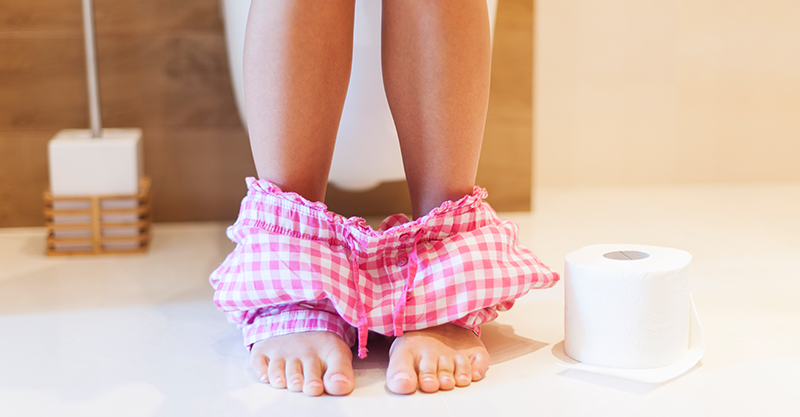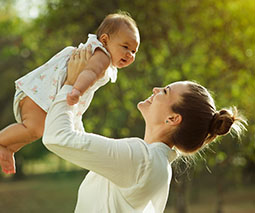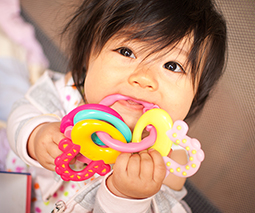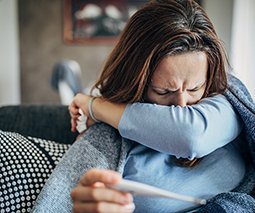Good news! Wee issues don’t need to control your life

Motherhood, womanhood and ageing are three things that come with their quirks – none more universal than incontinence. But what is it, can it be treated, and why do so many women suffer in silence?
What is incontinence?
Incontinence is a broad term covering all kinds of categories of leakage, be it from the bladder or elsewhere. It refers to the involuntary leakage of a fluid, most commonly urine. It can be both urine and faeces, from both orifices or even one.
Dr Sneha Wadhwani is a GP who specialises in women’s health. She believes that arming women with knowledge about their own bodies is key to empowerment. When it comes to incontinence she explains that for some women, leakage can become so bad that there can be faecal leakage through the vagina as well.
Listen to Sneha on Kinderling Conversation:
What causes incontinence?
While incontinence occurs for women regardless of whether or not they’ve had children, it is more likely to occur in those who’ve had a vaginal birth, though Sneha adds it can still happen if you’ve had a caesarean. While there are several causes, most seem to revolve around a general increase in pressure in the abdomen that comes with pregnancy.
“Carrying in pregnancy causes general increase in pressure in the abdominal cavity. [This pressure] pushes down on the bladder and support structures that hold the bladder in place,” Sneha said. “That means that when the baby is born these overstretched ligaments and tendons – which are also under the influence of hormones – don’t necessarily go back 100 percent, leaving us with a [muscular] deficit causing incontinence.”
Read more on womens’ health:
- Menstruation after birth – everything you need to know about what happens next
- Scientists may have found a CURE for polycystic ovary syndrome (PCOS)
- Kristen Bell says we need to talk mental health and addiction with our kids
Suffering in silence
Many women suffer from incontinence regardless of whether or not they’ve had children. It effects over 30 percent of Australian women, and close to 70 percent of those who have the problem don’t seek help.
One of the main reasons that women don’t seek help could be as simple as embarrassment. Sneha’s specialises in women’s health and has made it part of her professional mission to educate and empower women when it comes to their health – that there are steps women can take to stop feeling ashamed about the condition.
“This is probably one of the most under discussed complaints in women’s health,” Sneha says. “I think women are more likely to talk about it when they’ve had a few glasses of wine with their friends. Yes, it’s embarrassing. Up to 20 to 25 percent of women with incontinence also have sexual dysfunction, so that feeds into the embarrassment as well. It becomes something they want to hide and they don’t want to talk about. Equally, as women get a little bit older and they’ve had children, it becomes something that they feel like they’re just supposed to accept.”

Can it be cured?
Depending on the type of incontinence, there are various treatment options available. While a cure isn’t always available, there are definitely proactive steps women can take to improve their quality of life.
What are the different types of incontinence?
There are many iterations of incontinence, as they manifest from circumstances that are unique to each woman. The two most common types are:
1. Urge incontinence
Have you ever found yourself driving home, putting your keys in the front door and realised you can’t hold it in? This type of incontinence is called urge incontinence. Sneha explains that that type of incontinence responds well to retraining the bladder along with some medication that encourages the bladder to relax.
2. Sneezing and coughing
If you find yourself crossing your legs or physically holding yourself when you cough or sneeze, Sneha says that there are several treatment options ranging from:
- Surgery
- Physiotherapy to strengthen the abdominal floor
- Acupuncture
- Pilates and yoga
- Alternative and homeopathic treatments
Put yourself first
Sure, it isn’t a sexy topic. It’s used as the butt of so many jokes. But your health and wellbeing are not a joke, and when it comes to incontinence, no matter the type, it is something that can be managed.
“Up to 23 percent of women in Australia who have urinary incontinence take time off work because of it,” Sneha said. “We’re talking issues with their employment, issue with their sex life, issues personally and psychologically. It affects women in all areas of their life and really they don’t need to suffer.”
“My advice would be go and see your doctor,” Sneha recommended. For peace of mind, you can always request a referral if your GP can’t help or seek a second medical opinion. Because no woman should have to suffer in silence through incontinence.”









